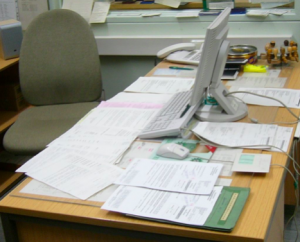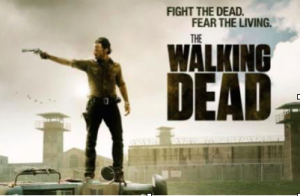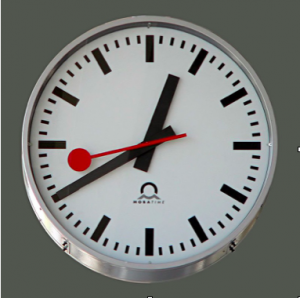Leap Year Means You’re Working For Free on Monday
- At February 26, 2016
- By rbadmin
- In Blog
 0
0
If you’re a salaried employee, you’re working for free this coming Monday, and it’s all because of Caesar Augustus.
Yes, really. Here’s why:
There are 365 days in a year, right? Wrong. There are 365 days, 5 hours, 48 minutes and 46 seconds.
But we’re not going to set out clocks back almost six hours every New Year’s Day. That would be ludicrous. Six o’clock in the morning would be the new midnight, until the following year when noon would be the new midnight. So every four years we add an extra day in February instead. This is one of those years. You probably learned that in the third grade, but there’s more to the story.
The ancient Egyptians were the first people to figure out that the earth takes slightly longer than 365 days to revolve around the sun. They weren’t sure exactly how many hours, minutes and seconds it took, but they were smart enough and precise enough to realize that something was…off.
The Roman Empire figured it out, too, but, unlike the Egyptians, the Romans used a lunar calendar instead of a solar calendar, and it created all kinds of problems that took them a lot longer than it should have to figure out how to solve.
They started with a ten-month 29.5 day lunar calendar. Which was pretty ridiculous. That only accounted for 295 days in a 365+ day year. Around 70 days passed every year that weren’t on the calendar. The Romans just blew those days off because they were winter days that didn’t affect the harvest.
After a while, though, they got tired of wondering what day it was and not having an answer, so they wised up and added January and February. That still left them with ten spare days at the end of the year, so they added a whole extra month every couple of years after February so that winter months didn’t eventually turn into summer months.
Julius Caesar finally said enough of this nonsense and came up with a solar calendar instead of a lunar calendar. Each month then had 30 or 31 days, except for August, which had only 29 days.
Back then, February had 30 days. Today it only has 28. Why? Because Roman Emperor Caesar Augustus had Narcissistic Personality Disorder. The month of August was named after him, and he was cheesed off that July, which was named for his predecessor Julius Caesar, had two extra days in it. He filched two days from February.
So now, almost 2000 years later, if you earn a monthly salary, you end up working for free every February 29. And that’s this coming Monday.
Congress could make Leap Day a national holiday. Maybe it should. It’s bonus time. It’s like time that falls out of the sky. We’d still have 365 productive days every leap year even if no work of any kind ever took place on February 29.
Then again, February is normally a short month anyway, so salaried employees get a screaming deal three years out of four. Maybe it’s best to leave well enough alone.
The solar system doesn’t keep time like a Swiss watch. We skip Leap Year every 100 years (except every 400 years when we don’t), which means we’re scheduled to skip this whole production in the year 2100. So if you really can’t stand it, rest assured that 84 years from now you’ll get some relief.
The Walking Dead is Going to Break Our Hearts
- At February 16, 2016
- By rbadmin
- In Blog
 0
0
The mid-season premiere of AMC’s The Walking Dead was a gut puncher, and we’re heading for a real heartbreaker in the season finale.
We won’t spoil anything for you if you haven’t yet seen it, but Sunday’s episode opens with one character falling to the zombie horde that has overtaken the Alexandria Safe-Zone, followed immediately by another. A third goes down within sixty seconds, and a fourth is mortally wounded.
The episode leaves us in a stunned state of shock before it’s even half over, and it’s hard not to seriously wonder for the first time if it’s the beginning of the end, if we’re about to see most of the main characters fall.
Those who haven’t experienced The Walking Dead yet have no idea why it’s the most popular show in the history of cable television. Sure, it speaks to our modern anxieties about global pandemics, terrorism and economic collapse, but there’s a lot more to it than that, starting with the fact that it’s not about zombies. Not really. If it was just about zombies, it would be the world’s longest B-movie.
Storytellers of all types take note: the only stories worth telling in this world are about people.
And The Walking Dead is about people. It’s about survival. It’s about the struggle to behave as a civilized person after civilization has been annihilated. The zombies are just there to blow up the world.
The story is necessarily violent and gruesome and terrifying as well as horrifying, but most of all it’s emotionally wrenching. We love these characters—most of them, anyway—and there’s no way they could all survive the end of the world.
Some of the human survivors are as bad as the zombies—or walkers as the characters call them—and we know already that a seriously bad dude named Negan is on his way to wreak yet more destruction on whatever’s left of the Safe-Zone.
He’s going to kill one of our favorite characters. Readers of the graphic novel series know who’s head is going to roll. At least they think they do. According to set rumors, though, the writers may have mixed things up a bit and are going to have Negan kill somebody else. It’s an interesting decision, if true. Those who think they know where the story is heading can enjoy, if that’s the right word, the suspense as much as the rest of us.
We can’t spoil it for you because we don’t actually know. No one leaked the script to us. We haven’t even read the graphic novels.
Whatever ends up happening, it will be devastating.
“I felt sick to my stomach when I read the script,” says star Andrew Lincoln, who plays Rick Grimes, the group’s leader. “It was the first day in the whole six years of working on The Walking Dead that I was late for work because I woke up in the middle of the night and I couldn’t get back to sleep. I was so angry and frustrated and I felt sick. And that was just after reading it.”
“The word ‘finale’ gives me a physical reaction because it’s the hardest day on set that I’ve ever had in my life,” says Lauren Cohan, who plays Maggie. “I never even imagined that as an actor you could have that experience. It’s one of the most raw experiences that I think any of us have ever had. Andy talks about being late to work; I didn’t want to go to work that day. It took a really, really long time for everybody to feel okay again after the finale, let’s put it that way.”
Season 7 is in the works, so somebody is going to survive whatever’s coming, but we may have to fortify ourselves with a box of Kleenex and some anti-depressants before we get there.
What the Best Super Bowl Ads All Have in Common
- At February 10, 2016
- By rbadmin
- In Blog
 0
0
Super Bowls ads cost a staggering $170,00 per second to air.
They’d better be good, then. They’d better be the best. If you want to air a boring infomercial that tells most people it’s time for a bathroom break, go ahead, knock yourself, but if you air it during the Super Bowl, not only will you lose millions of dollars, the people you’re trying to reach are likely to throw things at the TV.
Super Bowl fans expect the ads to be the best. Some people even watch the Super Bowl because of the ads.
They expect to see the best ads all year.
But why are they the best?
Some of them are funny, sure, and others are visually impressive, but we see funny and visually impressive ads all the time on TV that don’t cost $170,000 per second to air.
There’s something else going on here, something all marketers can learn from.
Let’s look at five of them.
First, a Pantene commercial shows masculine football players doing their daughters’ hair. We get see a softer side of these guys for a change. They are human beings before they’re football players. They have wives. They have children. They’re three-dimensional, not one-dimensional.
Next we see a boring guy in a boring beige suit step into his boring beige walk-in closet full of nothing but boring beige suits looking for a pair of boring beige socks. (Is there really anything in his house that isn’t beige?) An intimidating Christopher Walken appears in his closet like a nightmare apparition. Walken finds this guy utterly contemptible, and he cuts him down in the kind of blistering performance that actor is famous for. Then he offers Boring Guy salvation with the new Kia Optima. “It’s like the world’s most exciting pair of socks,” he says, “but it’s a mid-size sedan.” The guy gets behind the wheel and is instantly transformed from boring to Whoah!
T-mobile provides us with a little humor. Rap singer Drake is in front of a camera singing some smooth lyrics for a cell phone music video when three executives suddenly yell, “Cut!” They tell him to add the most annoying and schlocky corporate lines imaginable to his song. Lines like, “Device eligible for upgrade after 24 months,” “Mexico and Canada not included,” and “streaming music will incur data charges.” Drake laughs and says, “those changes don’t ruin the song at all!”
Coke brings us a fight between Marvel Comics’ largest superhero, the Incredible Hulk, and its smallest, the Astonishing Ant Man. Ant Man steals the last can of Coke from Bruce Banner’s fridge, which, natch, enrages Bruce and turns him into the Hulk. So Hulk chases Ant Man through the city and finally wins, only in his gigantic state he can’t get his thumb under the tab to open the can. The more-dexterous Ant Man pries it open for him and they both get a sip.
And finally, we see a depressed elderly man sitting in his living room staring at a blank television set. He’s not eating. His family is worried about him. He’s thinking about the glory days in his youth when he was an astronaut. He walked on the moon. He met the president of the United States. But that was all a long time ago. Today he looks like he’s just waiting to die. His son walks in and says, “Okay, Commander. Come with me.” It’s a genuinely touching moment. His son takes him outside and sits him down in the driver’s seat of a brand-new Audi R8. The astronaut stirs to life again as they zoom along a coastal road beneath a full moon while listening to “Starman” by the late and great David Bowie.
Some of these ads are light while others are serious. Some makes us laugh while others pull at our heart strings. But they all have one thing in common:
They’re all stories.
Some are just character sketches while others have more of a plot, but they’re all stories.
Storytelling is and always has been the most effective way to connect brands to customers. Humans beings have been wired for stories for as long as we have had language.
If you can tell people a story and touch them in some way by making them laugh or—if you’re really good—by making them cry, they won’t forget you. Some of them will share your stories with others.
The numbers don’t lie. Four million people watched the Christopher Walken ad on YouTube in less than a week. Five million watched the Coke ad on YouTube in less than a week. Seven million people watched the astronaut and shampoo ads on YouTube in less than a week.
So get out there and make your mark in this world by telling great stories.
New Year’s Resolution #5: Get Organized
- At February 05, 2016
- By rbadmin
- In Blog
 0
0
 A lot of us are disorganized. Our desks, if we’re not careful, can eventually look like miniature versions of hoarder houses.
A lot of us are disorganized. Our desks, if we’re not careful, can eventually look like miniature versions of hoarder houses.
None of us are born organized. We have to work at it a bit and cultivate some organizational habits.
Organize your mind
Start with getting enough sleep. There’s little chance you’ll be able to get yourself better organized if you’re groping through your day in a haze of brain fog.
One-third of Americans are sleep-deprived and another third are extremely sleep-deprived. So fix that first.
According to WebMD, sleep deprivation leads to decreased performance and alertness, memory and cognitive impairment, stress and occupation injuries. And that’s just in the short term. Long term sleep deprivation can give you a heart attack or a stroke.
Organize your work space
If you’re in a disorganized physical environment, your mind will be unfocused and scattered. Nothing should be on your desk except the things you use every day (or at least on most days) and whatever it is you’re working on at the moment.
If you don’t have anywhere to put all your stuff, get yourself some new cabinets, shelves or paperwork pockets that hang off the side of your desk.
Change your work space
Changing your physical work place once in a while can have the psychological equivalent of clearing everything off your desk. It helps you concentrate on whatever it is you’re working on.
If you work in an office, try working from home once in a while if you can to minimize distractions from your co-workers. If you work from home, try working in a café or a library occasionally.
You might be amazed how much more you can accomplish if you go to a specific place for a specified period of time to do one thing and one thing only.
Organize information
Put all your sources of electronic information in one place on your computer, either on a browser toolbar, a bookmark page, or a file or page you create yourself with links to everything you need to check regularly.
If you have more than one email address, make sure one is your primary address and that all emails from your secondary address or addresses are forwarded to your primary one.
Organize your projects
Write down every single one of your deadlines in one place. You should put them on your calendar, of course, but chances are you have all kinds of other things cluttering up your also, from meetings and lunch dates to doctor’s appointments and days off. You can easily blow a deadline if it’s wedged between six other items on the same date.
Throw things away
Go through your email once a day or once a week and purge everything you don’t need. Likewise with the paperwork on your desk and in your drawers.
You will accumulate a horrendous mass of paperwork if you never get rid of it, and you can waste boat loads of time looking for something if you’re not sure which huge stack it’s buried in.
Don’t think of tossing and recycling as a chore. Think of it as liberation.
New Year ’ s Resolution #4: Manage Your Time Better at Work
- At February 03, 2016
- By rbadmin
- In Blog
 0
0
Nobody is naturally good at time management. A lot of us suck at it. It’s a skillset we develop over time.
If you find yourself overwhelmed, if you wish there were 36 hours in the day instead of the measly 24, or if you wish you could genetically modify yourself so you no longer need sleep, these tips are for you.
Don’t eat the elephant
How would you feel if someone ordered you to eat an entire elephant? You might feel sick to your stomach. You’d almost certainly feel overwhelmed.
But let’s say you like the taste of elephant meat. And let’s say someone delivers 500 individually wrapped elephant steaks, along with a freezer for you to store them in, and says you can eat them for dinner one at a time.
You probably would not feel overwhelmed. You might even think that was awesome. Hey, free dinner for more than a year.
Think about that when you create your to-do list.
If you’re writing a book on tech start-ups in Europe, don’t put “finish the book” at the top of your list. That’s an elephant.
Put a steak on your to-do list instead. Put “write the next 500 pages” at the top of your list. All you have to do next time you sit down is write 500 words. No big deal. Do that every day and you’ll have an entire draft in less than six months.
Don’t write “create an IT budget” at the top of your list. That’s also an elephant. Instead, put the next individual step in the budgeting process at the top of your list.
You’ll feel a whole lot better if you do it this way. You won’t feel overwhelmed, there won’t be any doubt about what your next step is, and creating your to-do list and schedule will be a lot more straightforward.
Don’t sweat the small stuff
The small stuff can pile up and kill you with a thousand paper cuts if you let it, so get it out of the way as quickly as possible.
If a task will take two minutes or less to complete, don’t even bother adding it to your to-do list. Just do it. That’s one of the main takeaways from David Allen’s best-selling time management book, Getting Things Done: The Art of Stress-Free Productivity.
Just be sure not to take this too far. If you’re in “the zone,” so to speak, and deeply plugged into whatever it is you’re working on, don’t slam on the brakes of your thought train for some little thing that only takes a minute and a half to complete.
The time to knock out the small stuff is while you’re putting your to-do list together or after you’ve finished one task and haven’t yet started the next one.
Schedule blocks of time
Don’t just put appointments and meetings on your calendar. If you’re working on more than one thing at a time, schedule blocks of time for one.
Let’s say you’re working on a long project that you’ll need to chip away at for months before it’s finished (like a book, for instance), while at the same time you have weekly deadlines in addition to tasks that need to be finished daily. You can easily go off the rails if you don’t block out your time properly. Before you know it, you hardly get around to even starting the huge project because the more immediate deadlines of your weekly and daily tasks steal all your time.
One option, when facing this kind of workload, is to work on the long project first thing in the morning before looking at or even thinking about your more immediate tasks. There’s little chance you’ll blow your weekly and daily deadlines because you’ll stay at work late if you have to. But you won’t stay at work late to put in an hour or two on a project that doesn’t need to be finished until an eternity in the future.
Adhere to your natural rhythm
There’s no right or wrong way to schedule blocks of time for yourself. What works for one person won’t necessarily work for somebody else.
If you try to force yourself to behave in ways that don’t come naturally to you, you’re less likely to succeed than if you take your natural rhythm as a starting point and only tweak it as much as you have to.
If you’re not a morning person, don’t force yourself to become one by scheduling your most difficult tasks at 9:00. Get the easy stuff out of the way first and tackle the harder projects when you’re fully awake and energized.
Likewise, if you are a morning person and tend to crash during the afternoon, schedule the no-brainer tasks at 3:00 or even 4:00.




